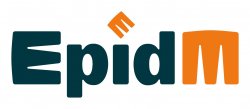Missing Data: Consequences and Solutions (WK81)
Amsterdam UMC / EpidM, Department of Epidemiology & Data Science
Archiv
22.01.2014 - 23.01.2014 Amsterdam, Niederlande
Bewerbungsfrist:December 15th 2013
Kursinhalte
Although researchers do their best to avoid missing data, it is a common problem in medical and epidemiological studies. How large your missing data problem is and how to deal with it depends on how much data is missing and why your data are missing. This two-day course provides you with tools how to evaluate and handle missing data in medical and epidemiological studies with different missing data rates.
Although researchers do their best to avoid missing data, it is a common problem in medical and epidemiological studies. How large your missing data problem is and how to deal with it depends on how much data is missing and why your data are missing. This two-day course provides you with tools how to evaluate and handle missing data in medical and epidemiological studies with different missing data rates.
Lernziele, Trainingsziele
The participant is able to distinguish between different missing data mechanisms called missing completely at random (MCAR), missing at random (MAR) and missing not at random (MNAR).
The participant is able to distinguish between different missing data mechanisms called missing completely at random (MCAR), missing at random (MAR) and missing not at random (MNAR).
Zielpublikum
The course is designed for everybody who wants to learn about missing data because missing data may be present in your own research and you are going to start with your data analysis or you want to learn how to judge other articles or research grants.
The course is designed for everybody who wants to learn about missing data because missing data may be present in your own research and you are going to start with your data analysis or you want to learn how to judge other articles or research grants.
Qualifikationen
The following concepts are assumed known by participants at the start of this course: - Knowledge of basic statistical tests as t-tests and regression analyses. - Knowledge of some basic SPSS commands.
The following concepts are assumed known by participants at the start of this course: - Knowledge of basic statistical tests as t-tests and regression analyses. - Knowledge of some basic SPSS commands.
Anmerkungen
On the first day of the course you will receive a package containing copies of all the lecture presentations and computer exercises, assignments, and feedback on these assignments.
On the first day of the course you will receive a package containing copies of all the lecture presentations and computer exercises, assignments, and feedback on these assignments.
Anfragen und Anmeldung:
Register via the website
Frau Drs Yvonne van Loon
Public Health, Public Health Forschung, Statistik

Art des Abschlusses
PHD, Teilnahmebescheinigung
PHD, Teilnahmebescheinigung
Kursform
Vollzeit
Vollzeit
Dauer
2 Tage
2 Tage
Sprache
Englisch
Englisch
Credit Points
0,5 ECTS - Points
0,5 ECTS - Points
Kosten
EUR 575,00
(If you enrol for 2 or 3 courses, you will receive a discount of 10%!)
EUR 575,00
(If you enrol for 2 or 3 courses, you will receive a discount of 10%!)
Teilnehmerzahl (max.)
24
24
Veranstalter Kontakt
Meibergdreef 9
1105 AZ Amsterdam
Niederlande
Meibergdreef 9
1105 AZ Amsterdam
Niederlande

"GOING INTERNATIONAL fördert den Zugang zu Aus-, Fort- und Weiterbildung, unabhängig von sozialen, geographischen und nationalen Grenzen."







